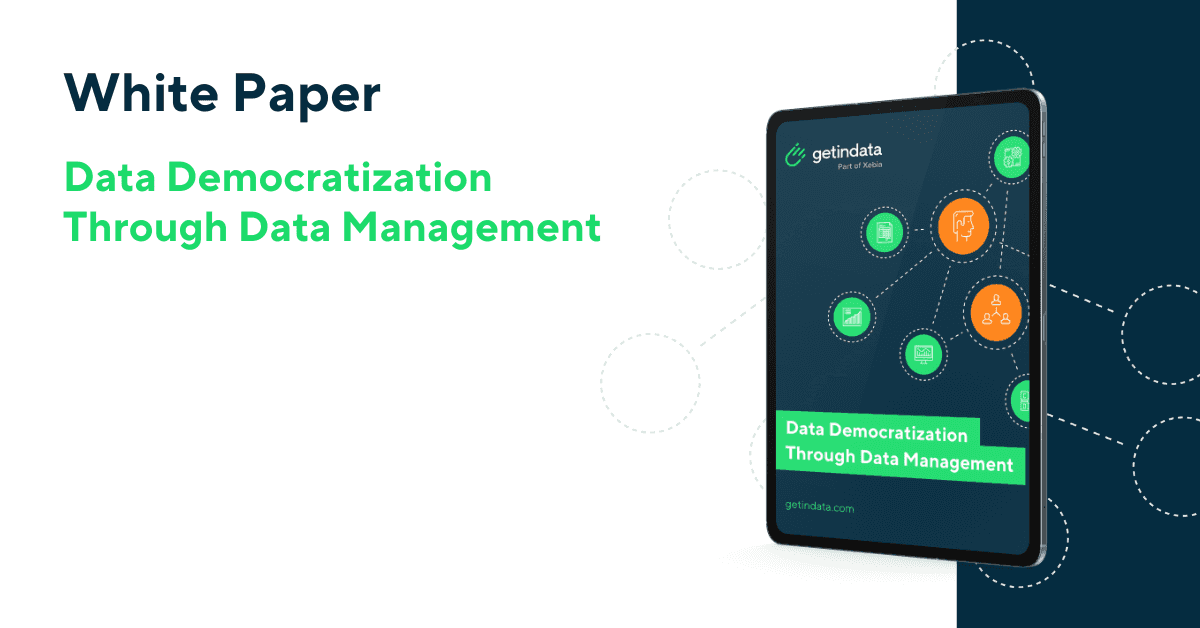In today's digital age, data reigns supreme as the lifeblood of organizations across industries. From enabling informed decision-making to driving strategic initiatives, the value of data cannot be overstated. However, for many years, access to data has been restricted to a select few within organizations, leaving valuable insights untapped and hindering innovation. Then, data democratization saw daylight as a paradigm shift that aims to break down the barriers to data access and allow all stakeholders to harness the power of data.
Understanding Data Democratization
At its core, data democratization is about making data more accessible to a wider audience within an organization. It involves removing the traditional gatekeepers of data and bringing up a culture of data-driven decision-making. By democratizing data, organizations can empower employees at all levels to leverage data in their day-to-day activities, thereby driving innovation, improving efficiency, and gaining a competitive edge in the market.
The Benefits of Data Democratization
Data democratization offers a number of benefits for organizations:
- Increased Decision-Making: By providing access to data across departments and hierarchies, organizations can facilitate data-driven decision-making at all levels. From frontline employees to senior executives, everyone can make informed choices based on data insights, leading to more strategic and effective outcomes.
- Boost Innovation: When data is readily available to employees, it becomes a catalyst for innovation. Teams can explore new ideas, experiment with different approaches, and uncover valuable insights that drive product development, process improvement, and business growth.
- Improved Collaboration: Data democratization fosters a culture of collaboration and knowledge sharing within organizations. When employees have access to the same data sets, they can collaborate more effectively, break down silos, and work towards common goals.
- Give the Power to Employees: With access to data, organizations can unlock the full potential of their employees. They can take ownership of their work, make data-driven decisions, and drive positive outcomes for the organization.
- Agility and Adaptability: In today's fast-paced business environment, agility and adaptability are key to success. Data democratization enables organizations to respond quickly to changing market conditions, emerging trends, and customer needs by providing real-time access to relevant data.
Considerations for Data Democratization
While the benefits of data democratization are clear, organizations must navigate several key considerations to ensure successful implementation:
- Data Governance: Data democratization requires robust data governance frameworks to ensure data quality, security, and compliance. Organizations must establish clear policies, procedures, and standards for managing data access, usage, and privacy.
- Data Literacy: Democratizing data also requires investing in data literacy initiatives to ensure that employees have the skills and knowledge to effectively interpret and use data. Training programs, workshops, and resources can help employees develop the necessary data literacy skills to make informed decisions.
- Technology Infrastructure: Implementing data democratization requires a solid technology infrastructure, including data management platforms, analytics tools, and collaboration platforms. Organizations must invest in the right technology solutions to support data access, exploration, and analysis across the organization.
- Change Management: Finally, successful data democratization requires effective change management strategies to overcome resistance to change and foster a culture of data-driven decision-making. Clear communication, stakeholder engagement, and leadership support are essential for driving adoption and realizing the full benefits of data democratization.
Data Democratization in Practice
In an era where data is the currency of business, data democratization emerges as a powerful enabler of organizational success. By democratizing data, organizations can empower employees, drive innovation, and gain a competitive edge in the market. However, successful data democratization requires careful planning, investment in technology and resources, and a commitment to fostering a culture of data-driven decision-making. As GetInData, we have gone through many different paths with our clients where we had to put all these pieces together: people, process and technology. Despite having different backgrounds and starting points, it always came down to make the organization gain competitive advantage by being data-driven.
If you want to dive deeper into data democratization and learn about our approach based on our rich experience from the field, check the white paper: Data Democratization Through Data Management

